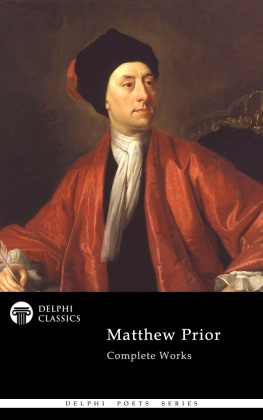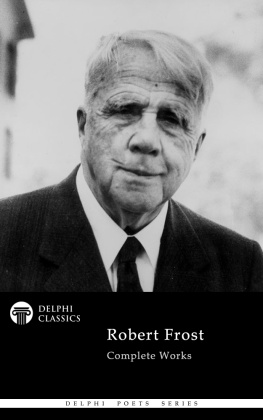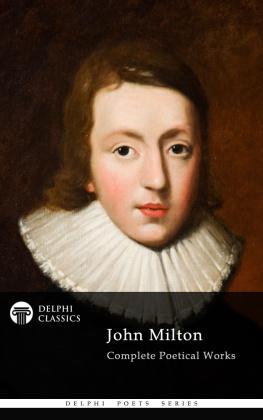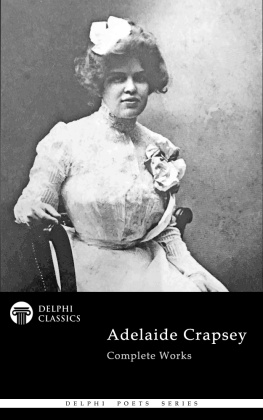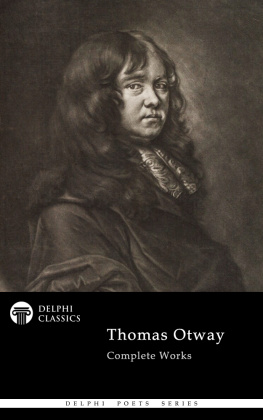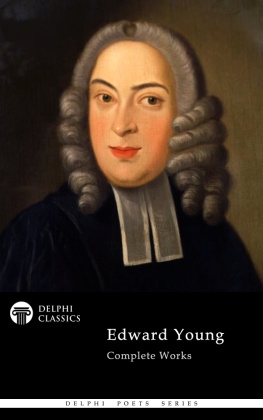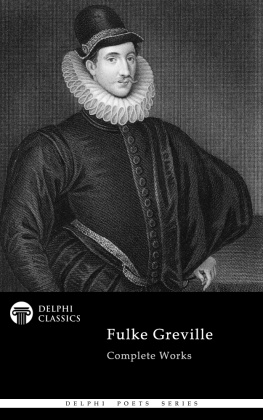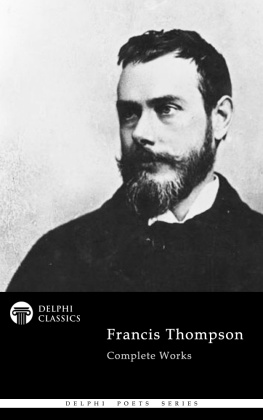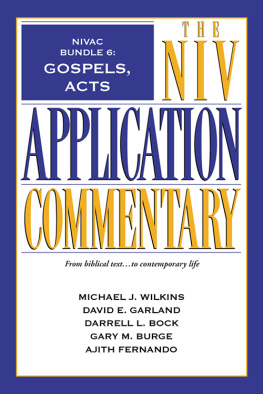

Matthew Prior
(1664-1721)

Contents

Delphi Classics 2019
Version 1









Browse the entire series


Matthew Prior

By Delphi Classics, 2019
COPYRIGHT
Matthew Prior - Delphi Poets Series
First published in the United Kingdom in 2019 by Delphi Classics.
Delphi Classics, 2019.
All rights reserved. No part of this publication may be reproduced, stored in a retrieval system, or transmitted, in any form or by any means, without the prior permission in writing of the publisher, nor be otherwise circulated in any form other than that in which it is published.
ISBN: 978 1 78877 948 7
Delphi Classics
is an imprint of
Delphi Publishing Ltd
Hastings, East Sussex
United Kingdom
Contact: sales@delphiclassics.com

www.delphiclassics.com
NOTE

When reading poetry on an eReader, it is advisable to use a small font size and landscape mode, which will allow the lines of poetry to display correctly.
The Life and Poetry of Matthew Prior

Map of Middlesex, drawn by Thomas Kitchin, 1769 Prior is believed to have been born in this historic English county.
Brief Introduction: Matthew Prior by Henry Austin Dobson

From 1911 Encyclopdia Britannica, Volume 22
MATTHEW PRIOR (1664-1721), English poet and diplomatist, was the son of a Nonconformist joiner at Wimborne-Minster, East Dorset, and was born on the 21st of July 1664. His father moved to London, and sent him to Westminster, under Dr Busby. At his fathers death he left school, and fell to the care of his uncle, a vintner in Channel Row. Here Lord Dorset found him reading Horace, and set him to translate an ode. He acquitted himself so well that the earl offered to contribute to the continuance of his education at Westminster. One of his schoolfellows and friends was Charles Montagu, afterwards earl of Halifax. It was to avoid being separated from Montagu and his brother James that Prior accepted, against his patrons wish, a scholarship recently founded at St Johns College. He took his B.A. degree in 1686, and two years later became a fellow. In collaboration with Montagu he wrote in 1687 the City Mouse and Country Mouse , in ridicule of Drydens Hind and Panther . It was an age when satirists were in request, and sure of patronage and promotion. The joint production made the fortune of both authors. Montagu was promoted at once, and Prior three years later was gazetted secretary to the embassy at the Hague. After four years of this employment he was appointed one of the gentlemen of the kings bedchamber. Apparently, also, he acted as one of the kings secretaries, and in 1697 he was secretary to the plenipotentiaries who concluded the peace of Ryswick. Priors talent for affairs was doubted by Pope, who had no special means of judging, but it is not likely that King William would have employed in this important business a man who had not given proof of diplomatic skill and grasp of details. The poets knowledge of French is specially mentioned among his qualifications, and this was recognized by his being sent in the following year to Paris in attendance on the English ambassador. At this period Prior could say with good reason that he had commonly business enough upon his hands, and was only a poet by accident. To verse, however, which had laid the foundation of his fortunes, he still occasionally trusted as a means of maintaining his position. His occasional poems during this period include an elegy on Queen Mary in 1695; a satirical version of Boileaus Ode sur le prise de Namur (1695); some lines on Williams escape from assassination in 1696; and a brief piece called The Secretary . After his return from France Prior became under-secretary of state and succeeded Locke as a commissioner of trade. In 1701 he sat in parliament for East Grinstead. He had certainly been in Williams confidence with regard to the Partition Treaty; but when Somers, Orford and Halifax were impeached for their share in it he voted on the Tory side, and immediately on Annes accession he definitely allied himself with Harley and St John. Perhaps in consequence of this for nine years there is no mention of his name in connexion with any public transaction. But when the Tories came into power in 1710 Priors diplomatic abilities were again called into action, and till the death of Anne he held a prominent place in all negotiations with the French court, sometimes as secret agent, sometimes in an equivocal position as ambassadors companion, sometimes as fully accredited but very unpunctually paid ambassador. His share in negotiating the treaty of Utrecht, of which he is said to have disapproved, personally led to its popular nickname of Matts Peace. When the queen died and the Whigs regained power he was impeached by Sir Robert Walpole and kept in close custody for two years (1715-1717). In 1709 he had already published a collection of verse. During this imprisonment, maintaining his cheerful philosophy, he wrote his longest humorous poem, Alma; or, The Progress of the Mind . This, along with his most ambitious work, Solomon , and other Poems on several Occasions , was published by subscription in 1718. The sum received for this volume (4000 guineas), with a present of 4000 from Lord Harley, enabled him to live in comfort; but he did not long survive his enforced retirement from public life, although he bore his ups and downs with rare equanimity. He died at Wimpole, Cambridgeshire, a seat of the earl of Oxford, on the 18th of September 1721, and was buried in Westminster Abbey, where his monument may be seen in Poets Corner. A History of his Own Time was issued by J. Bancks in 1740. The book pretended to be derived from Priors papers, but it is doubtful how far it should be regarded as authentic.
Next page
